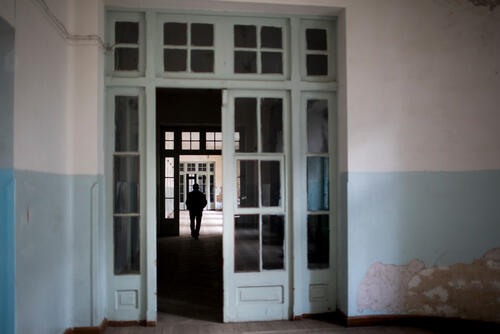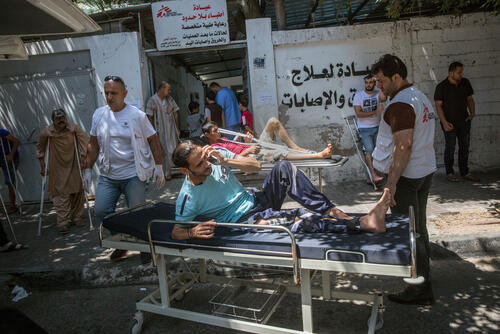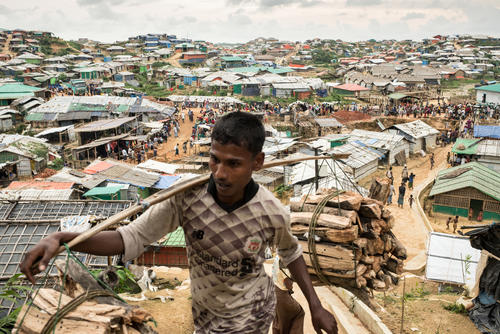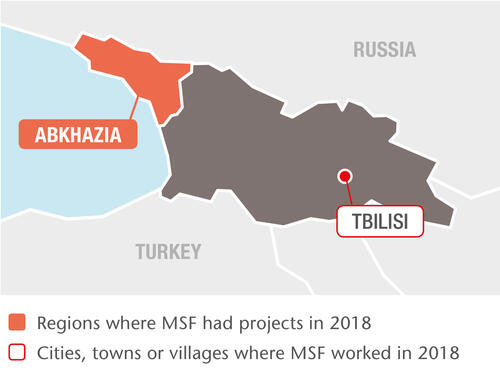
16
16
Although the incidence of TB is falling in Georgia, drug resistance is found in over 10 per cent of new patients and 30 per cent of those already receiving treatment for the disease.<a href="http://www.euro.who.int/__data/assets/pdf_file/0010/364663/tb-report-2018.pdf">World Health Organization, Tuberculosis surveillance and monitoring in Europe, 2018</a>
We implement endTB in Georgia, a UNITAID-funded partnership covering 17 countries, launched in 2015 with the aim of finding shorter, less toxic and more effective treatments for drug-resistant TB. A key part of this initiative is an observational study of the safety and efficacy of bedaquiline and delamanid; we have enrolled 297 MDR-TB patients in the study in Georgia. The last patients will finish their treatment in January 2019 and receive follow-up visits for six months, allowing for completion of the study in July 2019.
Georgia is also participating in an endTB clinical trial that uses bedaquiline and/or delamanid to find radically shorter, more tolerable, injection-free treatments for MDR-TB. Enrolment in the trial ended in February 2018, with 10 patients to be monitored until February 2020.
In addition, we continued to support the local health authorities in Abkhazia, supervising the care of patients being treated for MDR-TB, extensively drug-resistant TB (XDR-TB) and co-infections such as hepatitis C. Ensuring access to quality-assured drugs and ongoing patient monitoring are the most urgent challenges here. We supported the enrolment of 14 patients on newer TB drug regimens and provided hepatitis C treatment to five co-infected patients in 2018, with 76 patients screened for treatment to begin in 2019.

















